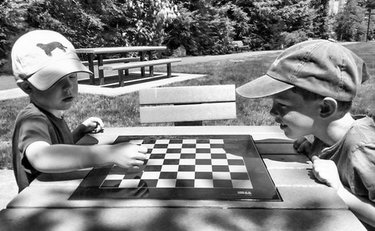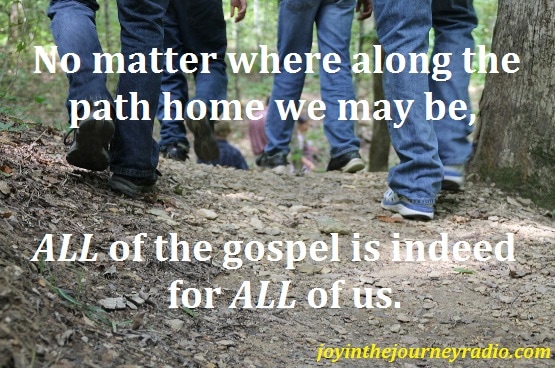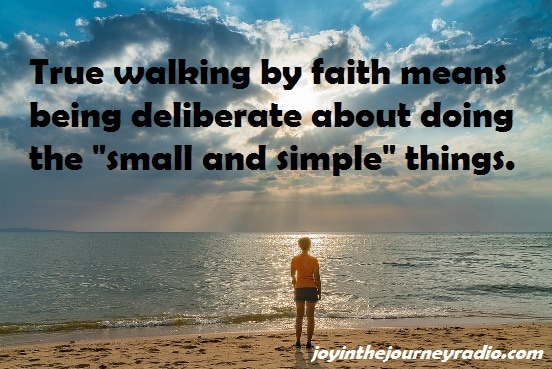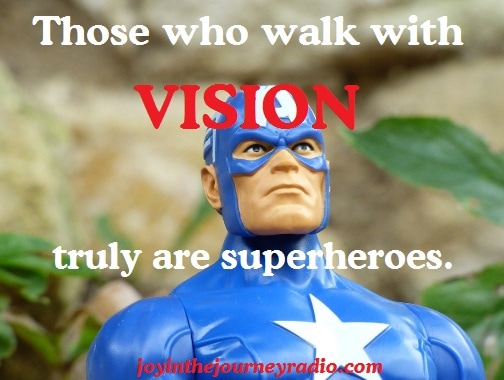 LDS singles can easily feel like second-class citizens in the family-centered culture of the Church. The continual focus on something we don’t have just makes feeling like we belong and staying positive and optimistic more difficult. Of course, the Church must teach the doctrines related to the family. How could they not? “The Family: A Proclamation to the World” begins with the solemn declaration “that marriage between a man and a woman is ordained of God and that the family is central to the Creator’s plan for the eternal destiny of His children.” Yet teaching the gospel as though everyone has the ideal situation serves more to alienate those who are different than invite them to continue participating. We need to teach the doctrines related to the family while at the same time help those who don’t have that ideal situation to feel fully included in the Kingdom. The way forward likely includes a recognition that we’re each at different points along the path to the same heavenly home. And we must testify with our actions that, no matter where along the path we may be, all of the gospel is indeed for all of us. Embrace inclusion  That recognition will carry more weight when we truly care for everyone around us. Words in Sunday School about a wonderful and inclusive ward family mean little when singles are left to confront the storms and other challenges of real life on their own. Often, lessons about the family focus on the needs of those who are married. Broadening that focus to recognize those who don’t have the ideal family structure in their lives can provide a foundation for inclusion. Spending some time during lessons applying the family doctrines to singles as well as to marrieds can further that sense of inclusion. For example, we read towards the end of the Family Proclamation,
Whereas marrieds strive to maintain their families, singles strive to create new ones. Why must lessons focus solely on those who already have families? Why can’t they include those who are trying to create them? For instance, we can include examples of applying the principles in the Family Proclamation to dating. When considering a dating prospect, do we truly prize qualities such as faith, forgiveness, respect, and compassion? Or do we refuse a prospect who may have those qualities in spades but lack the more worldly qualities not mentioned in the Family Proclamation? Look inside
My single brethren, how are your presiding skills? D&C 121 is a great start if you need a refresher. How is your ability to provide the necessities of life? Note the word necessities doesn’t include fancy sports cars or weekly shopping sprees at the mall but does include putting a roof over people’s heads, food in their bellies, and a pillow under their heads at night. If you find your ability to provide lacking, what are you doing to improve? Single sisters, don’t think you’re getting left out here. How are your nurturing skills? Again, if you find your ability lacking, what are you doing to improve? Let all help all  As a divinely inspired document, the Family Proclamation is filled with wonderful sentences that can both teach the doctrine of the family and help everyone regardless of their situation to feel included in the larger community of the Saints. However, of all the sentences in the Family Proclamation, I do have a favorite. It’s this one: “Disability, death, or other circumstances may necessitate individual adaptation.” I love that sentence! Why do I love that sentence so much? Here the Brethren acknowledge that life is sometimes less than ideal and those who find themselves so situated are still acceptable before God so long as they do their best with what they have. Note that “individual adaptation” applies to more than just those who find themselves in less-than-ideal situations. It applies to everyone. We’ll never truly live in Zion until all of us labor to help all of us along the path home. That’s because we can’t live in Zion without embracing all of the gospel. And all of the gospel is indeed for all of us. Ministering to everyone around us and not just those who are like ourselves may be difficult at first. But if pursued honestly, it will bring us more joy in our journey.
0 Comments
 Recently I’ve reflected on everything I’ve done since all this started on 12/12/12. I’ve come a long way. The road behind me is filled with accomplishment, much of which I simply didn’t envision back in 2012. I can’t say all of my blog posts have been classics, but I do have a post for every week since the start of 2014. That’s almost 3 ½ years of weekly posts, most of which have no comments. I said back then I wasn’t doing any of this for acclaim, and that’s still true today. All I’ve ever wanted was real. You don’t need the attention of others to get real. That post at the start of 2014 is definitely a classic. I’ve produced a few more along the way. One that keeps coming back to me reminisced about a older friend who lives in Seattle. We conversed 90 minutes about love, concluding no one can really define what love is. We know when it’s there and when it’s not because we can feel it. But it’s impossible to define exactly what love is. Love means sacrifice  That conversation transformed me. It’s since led me to ponder this question: What does it mean to love someone? Before that conversation, I thought I knew. Since then, I’m not completely sure I do know. Part of the answer surely lies in sacrifice, forgoing your own desires to help others fulfill theirs. It’s been almost four years since Tashi died, but I still think about her and how my heart broke. Even a blind man can see I loved that cat. But why? When I first adopted her, Tashi had tremendous trouble eating properly. Every time I fed her, she would eat as though it were her last meal, which isn’t normal for cats. This and other behaviors led me to wonder if a previous owner had abused her. Of course, eating so quickly caused her to vomit later. Every day I had a new mess to clean. I spent 11 months training Tashi to eat normally. And even then she never completely stopped vomiting, though it was much less frequent than before. Without my sacrifice, my love for her wouldn’t be as deep as it was and still is today. Love means selflessness  That conversation with my Seattle friend reminds me of the final midsingles activity I attended there — FHE in my friend’s home. The lesson portion evolved into a conversation in which people were sharing their thoughts about how to grow the midsingles group. Normally I like to listen to others and learn how they see the world. This evening, however, I couldn’t resist sharing my perspective. And knowing this to be my last activity there for the foreseeable future, I held nothing back. I declared love is meaningful only when it involves people who are different. Talking to others we like and sitting with others we want around us isn’t all that difficult. We get to stay in our comfort zone. Conversely, talking with others who are very different and sitting with others we don’t want around us does require us to leave our comfort zone. Yet here love truly has meaning because here we act against self-interest. The Savior taught,
Love means discomfort  I spoke many other words along the same vein that evening. All together they made some visibly uncomfortable. I rejoiced to see that, not because I have some sadistic pleasure in seeing people squirm but because it meant I was speaking truth. I was getting real. In the end, I invited everyone to surrender to love. I testified that only by surrendering to love would we ever become the truly supportive group everyone talked about becoming. Since then I’ve seen singles group after singles group struggle with creating a true sense of community. Leaders who consider singles committees as nothing more than activity planning groups don’t help. No one can come together when everyone has their own agenda. That will never change until we all surrender to love. Only by forgetting ourselves and focusing upon others will we ever create the community of the support network many LDS singles need in their lives. Yes, surrendering to love is hard. It goes against the natural man and woman. But the rewards of love far outweigh the price we must pay to obtain it. And having those rewards will bring us more joy in our journey.
I actually felt something enticing me to read it as I looked at the different options before me, but for some reason I can’t fully explain, I shied away from it. At length, not finding the indication I sought elsewhere, I turned to it and began reading. As I read, what I sought was everywhere in spades. Why I should focus here I have no idea. But as the title of the address implies, when the Lord directs, we should do it. When you think about it, that actually fits perfectly with our discussion last week about walking by faith and journeying with vision. Adopt a deliberate humility  Elder Clayton begins by describing Mary, the mother of Jesus, at a wedding feast in Cana. When the wine for the feast had been exhausted, Mary turned to Jesus. After a brief consultation, she then instructed the servants, “Whatsoever he saith unto you, do it” (John 2:5). They did, and thus we have the miracle we know of turning water into wine. Elder Clayton then described Mary’s original insertion into the Savior’s story when the angel Gabriel announced she would give birth. Mary was of course startled at first. Then as Gabriel began to explain the message he had been sent to deliver, Mary became filled with many questions. But as Elder Clayton explains,
What an amazing example of faith and humility! Instead of insisting to know the end from the beginning before taking the first step, Mary simply submits her will to the Lord. How many of us would do likewise? How many of us singles insist on knowing when we will marry and how it will happen before taking the first step towards eternal blessings? Display a deliberate obedience  We all face challenges in life. And sometimes we get so focused on finding the solutions to our problems that we forget the “simple practices of faith.” Elder Clayton acknowledges these struggles in our lives while at the same time declaring that those simple practices provide the strength we need to confront our challenges. We hear about those simple practices so often we call them Sunday School answers. And it’s easy to think of those simple practices providing answers only to routine living; they give us a structure for what we do everyday. But when it comes to real living filled with problems that feel unique and have no easy answers, we often want something more than Sunday School answers. As seemingly unrelated as they may seem to our unique challenges, simple practices of faith are the answer to whatever challenge we face in life. Elder Clayton declared,
“Those who are deliberate about doing the ‘small and simple things’” aren’t living life on autopilot. They consciously choose what they do and why they do it. They consciously choose to be faithful in all the little questions regardless of if or when they get answers to their big ones. That’s the mark of true walking by faith. Receive deliberate blessings  Adopting this deliberate form of obedience can do more than strengthen us in our moments of trial. It can also open the windows of heaven to unfolding before us the revelation we need to resolve concerns and overcome challenges. When we think of revelation, certainly the First Vision comes to mind. It’s hard if not impossible to imagine the Restoration happening without the First Vision. But can you imagine the First Vision happening without the simple practices of faith that the boy Joseph Smith practiced before witnessing that marvelous revelation? Elder Clayton spoke of the connection between the simple practices of faith and the revelation we seek.
Adopting a deliberate humility before the Lord will help us to display a deliberate obedience to all the small acts of righteous living. That in turn will strengthen us in our search for eternal blessings. Consciously choosing to do what the Lord wants us to do today without insisting on having any answers to questions about the future will qualify us to receive the rewards of faith, diligence, and patience. And receiving those rewards will bring us more joy in our journey.
 I’m sure we’ve all had the childhood fantasy of being a superhero. The world — or at least the world as we knew it — was on the brink of total annihilation. Then, at the pivotal moment, we step in, defeat the villains, and save the world. Such dreams of my younger days took a slight twist when hormones began coursing through my veins. Instead of saving the world, I was saving a beautiful woman who of course would fall madly in love with me for saving her. We would get married and live happily ever after. Then I would wake up and see reality was something very different. We’ve all dreamed of saving the day in one form or another. Those we dream of saving may or may not need us to be a superhero. But our own individual lives certainly do. Yes, our lives need each of us to be a superhero — a superhero of faith. We need to walk by faith in order to live our best life, to do everything the Lord wants us to do and become everything He wants us to become. Achieving that means rising above the ordinary and making faith our superpower. Step into the dark  Superheroes of faith walk by it. I’m sure many of us know Paul’s declaration that “we walk by faith, not by sight” (2 Corinthians 5:7). Yet I’m not as certain that as many of us live that. Too many want to see the end from the beginning. We all have decisions to make in life, and many of us want to see that everything will turn out OK before we take that first step. President Boyd K. Packer once told about seeking advice from President Harold B. Lee in making an important decision. After hearing a rehearsal of the situation, President Lee responded, “Your problem is that you want to know the end from the beginning. You need to walk by faith. Consult with the Lord, make the best decision you can, and then trust the Lord to work everything for your good.” President Packer followed that counsel, and indeed, everything worked out for his good. Many of us want to know how everything will work out before we take that first step. We need to trust the Lord when He reveals a path to us and take that first step into the dark. Walking by faith means trusting Him to work everything for our good, especially when we don’t know how that could ever happen. Proceed with vision  In contrast, walking by sight means proceeding with a preconceived plan in view. We saw the plan detailing how everything comes together before we took the first step. And we continue to view that plan as we journey onward. Walking by sight also means proceeding in accordance with what we our natural eyes see. Too often we relinquish our dreams because what we see with our natural eyes tells us those blessings can never come to us. The life we desire seems so impossible we wonder how it could ever be. Enoch had just such a moment. When the Lord called him to declare repentance, he wondered, Why me? For “I . . . am but a lad, and all the people hate me; for I am slow of speech” (Moses 6:31). But the Lord told him, “Go forth and do as I have commanded thee . . . . Anoint thine eyes with clay, and wash them, and thou shalt see” (Moses 6:32, 35). Upon doing so, Enoch gained a vision of his potential. He then proceeded with that vision and became everything the Lord wanted him to become. The Lord has great blessings for us, but we must walk with vision to receive them. We must act in full confidence His promises will be kept, even when what we see with our natural eyes says they never will. Exercise your power  Walking by faith — with vision and not by sight — is truly extraordinary in a world where mediocrity is the norm. This is a world which says that seeing is believing. Those who proceed with vision truly are superheroes. Their superpower of faith allows them to walk with confidence that believing is seeing. At length, what was seen only in the inner world becomes visible for all in the outer world. Do you want your best life? Be a superhero. Partner with the Lord. Let Him show you your potential and the path you need to take to realize it. When you step out into the dark, fully confident the Lord will be with you, you’ll find the light you carry — the light that is the Lord — will go with you. And that will bring more joy in your journey. |
Author
Howdy! I'm Lance, host of Joy in the Journey Radio. I've been blogging about LDS singles life since 2012, and since 2018 I've been producing a weekly Internet radio show and podcast to help LDS singles have more joy in their journey and bring all Latter-day Saints together. Let's engage a conversation that will increase the faith of LDS singles and bring singles and marrieds together in a true unity of the faith.
Comment
Joy in the Journey Radio encourages the free discussion of ideas but reserves the right to remove and/or block comments which do not conform to LDS standards.
Donate
Joy in the Journey Radio offers many free resources to help LDS singles everywhere, but it certainly isn't free! Help Joy in the Journey Radio in its mission to improve the lives of LDS singles by donating today.
Posts by Month
December 2022
Categories
All
|






 RSS Feed
RSS Feed